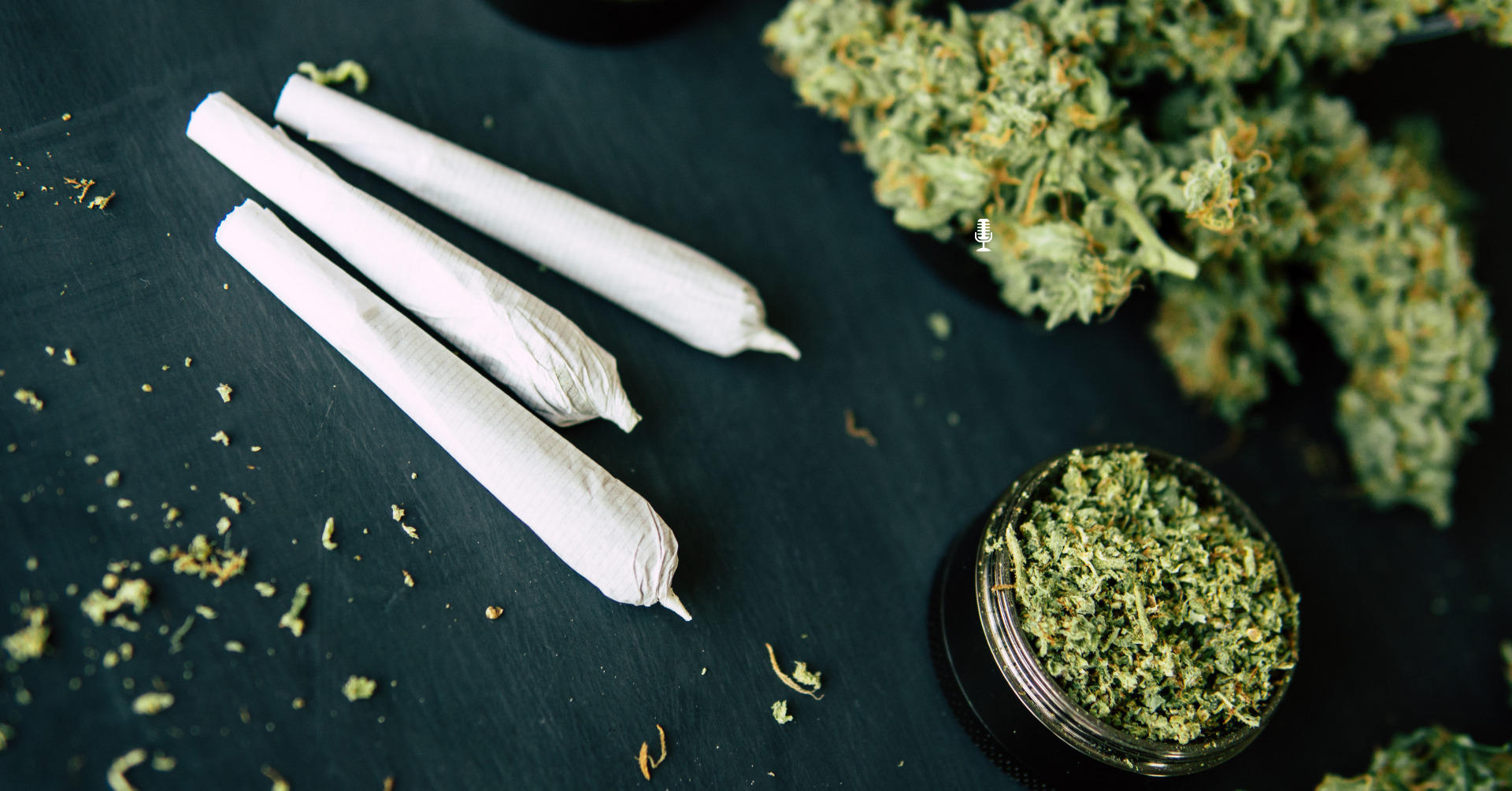
In some states, the cost of cannabis is very affordable. Those states tend to have both recreational (adult-use) legislation in addition to legalized medical marijuana. And that is no accident. Some of the highest-priced cannabis in the country exists in states that have only legalized medical cannabis. And weed is expensive, depending on where you live, as a result.
That is not by accident. And it is because once a state has legalized recreational weed. So does competition between dispensaries, which levels the price for consumers and patients.
If you live in a state that has affordable cannabis, consider yourself lucky. Because that is not the reality for many people. And for some patients, the affordability of medical cannabis is a big and growing problem.
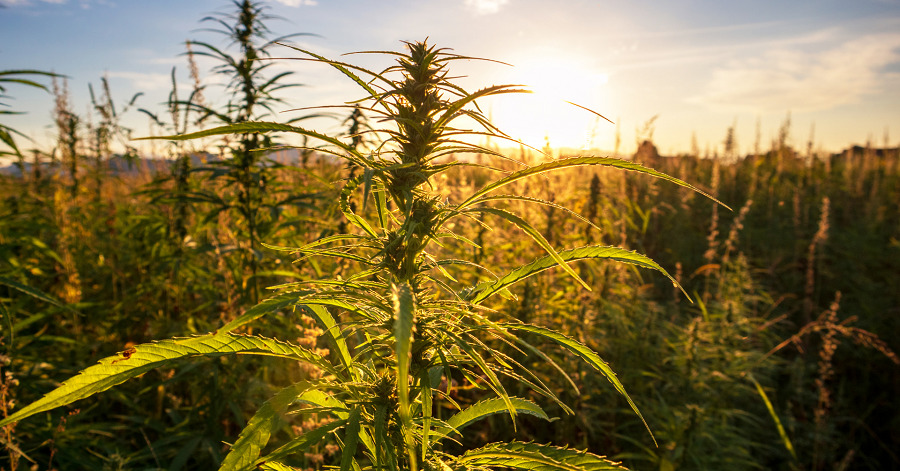
The most recent report and information about the cost of cannabis (medicinal and adult-use averages) was released in December 2021. Have you heard of Pablo Zuanic? He is an analyst and the Managing Director at Cantor Fitzgerald.
If you regularly invest in cannabis stocks, you definitely know who he is. And why his insights are so valuable. According to Benzinga, Zuanic recently reviewed the cost differences between fourteen states and determined where cannabis was least affordable.
In the review, the cost of cannabis ranged from a low of $9.75 per gram to a ‘high’ of $18.60 per gram. The top five states where weed is expensive are:
When you look at costs per gram, the price may not seem so shocking. But when you do the math on a per ounce scale, you can see why consumers aren’t happy. For example, an ounce of cannabis from a Virginia dispensary would cost you $527 on average. One ounce is approximately 28.34 grams.
To stem the opioid crisis in the United States, western medicine has started to evaluate cannabis as a suitable alternative. More evidence-based data is required and studies about the long-term effects of medicinal cannabis use. But that information already exists about opioid medications. And we know that long-term use of opioids can create other health problems, addiction, and potential overdose risks.
When the World Health Organization (WHO) calls opioid abuse an epidemic, it’s time to consider safer alternatives. Particularly for patients that have long-term moderate to severe pain management needs.
That means in Pennsylvania; you would be paying just over $442.00. In Ohio, at the lowest end of the range of affordability, residents would still pay about $391.00 per ounce. When you consider that most states allow patients with a medical card to purchase up to 2-3 ounces per month? We’re talking about $1200 to more than $2000 per month to help manage health symptoms.
One of the biggest advantages of federal legalization of medical cannabis (and it could happen) would be subsidized cannabis costs for patients. And if medical marijuana is legalized at the federal level, that also means that health insurance companies may be required to pay some (or all) of the costs, just like any other type of prescription medication.
There are three FDA-approved cannabis-derived prescription medications available. Dronabinol (Marinol) and Nabilone (Cesamet) are prescribed for nausea caused by chemotherapy. And Epidiolex was approved in 2018 for Lennox Gastault and Dravet Syndrome.
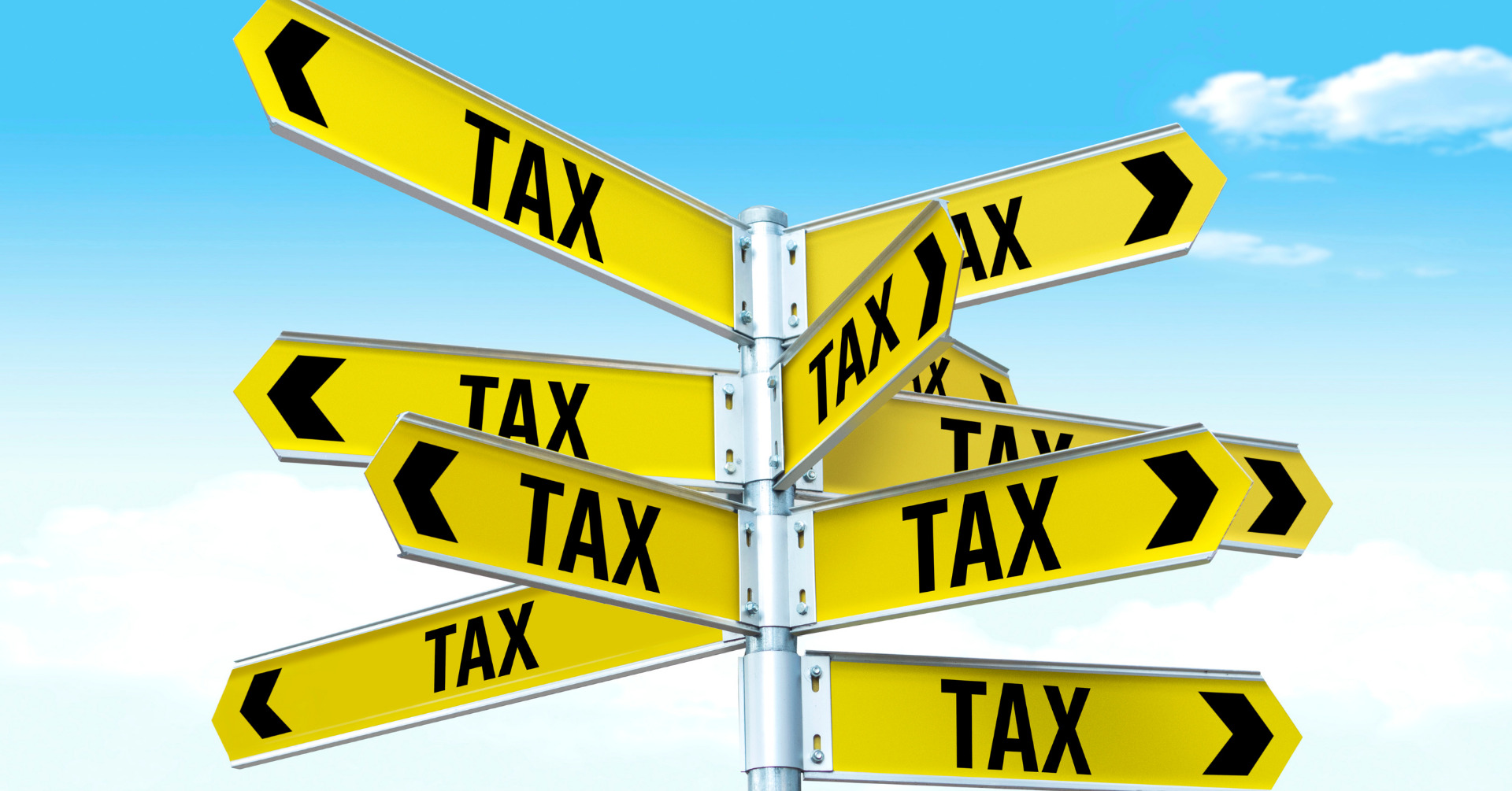
Cannabis prices are impacted by a number of factors. Some are production-related, and others are due to regulatory requirements for operators in the state. Because being a cannabis cultivator, producer or retailer can be lucrative (high demand for products). But also very expensive operationally.
Taxes. Surprised? Don’t be. Because when it comes to taxing cannabis, excise taxes (or the additional tax that consumers pay) is just the tip of the iceberg. If you thought paying retail tax was painful, you should try being a cannabis producer, processor, or dispensary.
Companies that produce and sell cannabis products face a disproportionate tax rate. The standard corporate tax rate is about 21%. But some marijuana companies can see taxes more in the range of 40% to 80%, according to the IRS 280E Tax code.
Even though cannabis is still a Schedule 1 prohibitive substance, you still have to pay business tax on it at several levels. And deductions for cannabis businesses are also scant, unlike other sectors.
Unbanked people have to pay higher costs for essential banking services. For the cannabis industry, that is like “preaching to the choir.” Because while a few credit unions will do business with cannabis companies, chartered (or federally regulated) banks will not. Managing financial transactions outside of the federal chartered bank system is another reason why weed is expensive.
As long as cannabis remains an illegal drug on the Controlled Substances Act, banks will not do business with companies. The Secure and Fair Enforcement (SAFE) Banking Act has been passed several times by the U.S. House of Representatives. And then it stalls. That is the legislation that would make it legal for chartered banks to do business with the cannabis sector.
Late last year (2021), the SAFE Banking Act was added to the National Defense Authorization Act (NDAA). That was the big omnibus spending bill that went before Congress. Unfortunately, SAFE was removed from the NDAA during the second week of December.
This impacts the cost of business for cannabis companies. A good example to compare would be the difference between getting a bank loan for a new car versus a payday advance loan. The American cannabis sector gets fleeced by alternate financial service providers because there is no other option.
In some states, medical cannabis is tax-free. Patients pay no taxes (or very little tax) as they would on prescription medication. This helps keep cannabis more affordable for patients.
There are more than seventeen states that have now legalized recreational cannabis. In those states, consumers who are not medical cardholders will pay a higher tax rate. Each product purchased is subject to the state sales tax and then an excise tax charged only on cannabis products. And then, some jurisdictions or counties have the right to tag on an extra local tax. Averaging about 3% on top of retail sales tax and state cannabis excise taxes. Consumers can pay over 30% of taxes in some states.
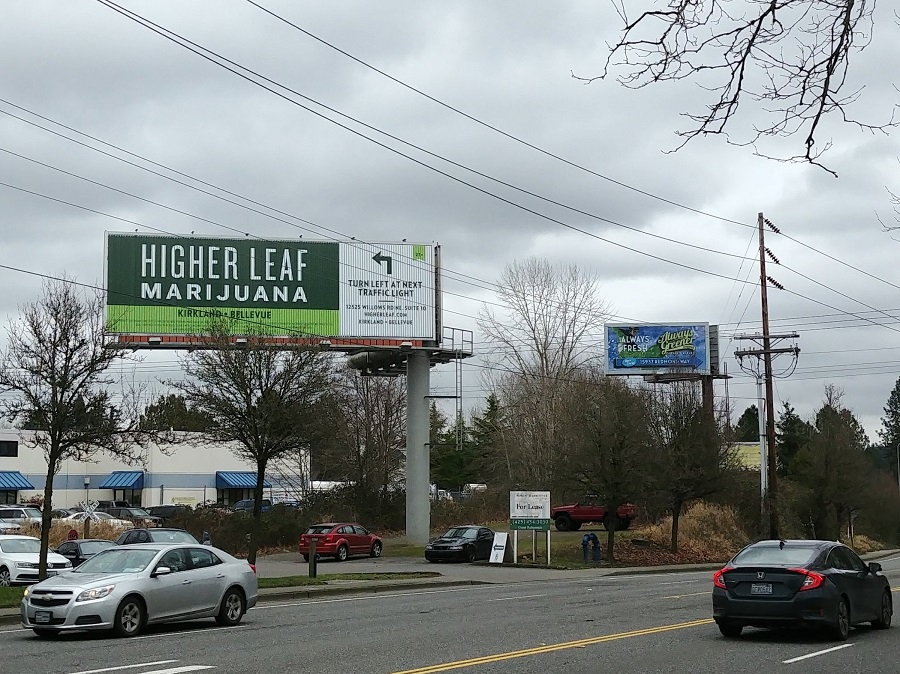
Did you know that some states have banned the use of billboard advertising for dispensaries? Usually along state highways where that advertising is most valuable for cannabis retailers.
Because of the continued federal prohibition against cannabis, advertising can be more expensive for businesses. That’s because some digital channels (which most businesses rely on) are not an option. Try running a Facebook advertising campaign for your dispensary. One advertisement may be approved. But most of them won’t. And search engine display ads are even more restrictive.
Cannabis retailers rely on other methods, like listings on popular searched websites—places where people can learn more about cannabis strains and find a local dispensary. But listings on Weedmaps, for example, can reach $1000 per month or more for a business. Depending on the placement in the directory, demand, and competition in the area.
In markets where there are many dispensaries, it can be equivalent to a marketing and advertising ‘arms race’. There are only so many consumers and an ever-increasing number of dispensaries in most jurisdictions. That (combined with state advertising restrictions) can make it difficult and expensive to find and retain cannabis customers.
Extraction equipment doesn’t come cheap. If you are a company that is vertically integrated, production is very expensive. So is cultivation, preparation, and processing to create cannabis products. Yet another reason why weed is expensive.
And then you have the cost of operating one or more dispensaries. That requires commercial space. While it is not illegal to rent land or a building to a cannabis company, there can be legal red tape. Mostly from a liability perspective, given that the products are technically not federally regulated.
There is a federal law dubbed the “Crack House Statute.” It is actually 21, USC § 856, and called “Maintaining drug-involved Premises.” This legislation makes it a felony to willingly rent any commercial property to a manufacturer of a prohibited substance. Whether the purpose is to grow (land leases), process (manufacture), or retail as a dispensary. And because commercial landlords are taking a calculated but real risk, the cost of renting space is much higher for cannabis companies.
Cannabis products have to comply with state laws when it comes to third-party testing. Did you know that every batch processed must be tested for quality control? And also to comply with maximum potency levels set by the state. It’s another reason why weed is expensive in many states.
That amount of scientific sampling, reporting, and recording keeping gets very expensive for companies. That is because states require mandatory third-party testing. A cannabis company cannot hire a quality assurance laboratory expert to submit those tests. It has to be done by a company that is not affiliated with the producer.
Kevin Gallagher is the Director of Compliance and Regulatory Affairs at “Apothecary Farms & Apothecary Extracts.” He is also the founder of the Colorado Cannabis Manufacturers Association. In an interview from October 2021 by The Journal Record, Gallagher shared the cost-burden of third-party testing:
“Testing right now is 48% of our total operating costs, [and] when we look at pharma, when we look at commercial food, testing accounts for 5-10%.”
The cost of doing business in the state is dramatically impacted by the growing cost of third-party testing. And the more cannabis you produce, the more testing is required. So, there is no escaping it. Weed is too expensive because operating costs are through the roof for producers and retailers.
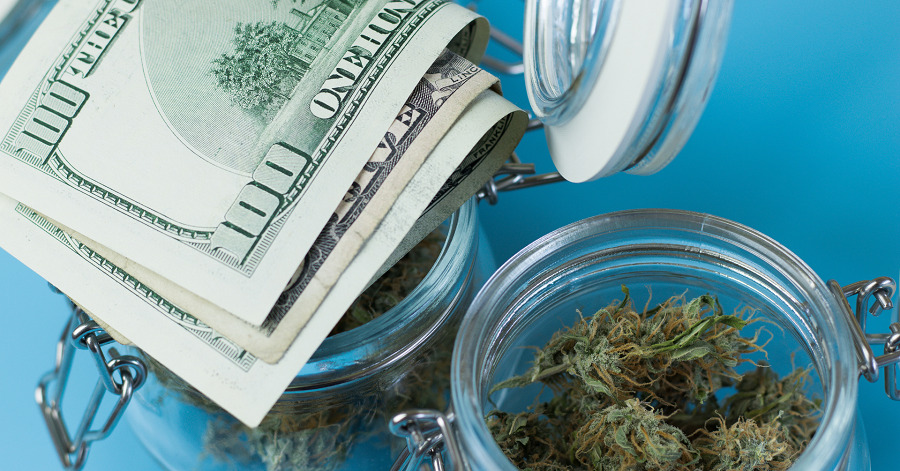
The answer is a resounding “yes.” Because the regulatory red tape would be removed, access to equal banking opportunities offered to other sectors would happen. And the price gouging that cannabis businesses endure would be over. All those things exist because of the current federal prohibition of cannabis.
Consequently, it would make wholesaling of raw and processed cannabis products legal. That means, in states where production is inadequate for demand, dispensaries could buy cannabis flower. And hemp from other states. Import it to the state (legally) and manufacture products with it.
And that could mean less pressure and lower costs for production. And savings (ideally) passed on to consumers. Weed is expensive. Federal regulation would quickly fix that for both patients, and recreational users.
No Information on MarijuanaDoctors.Com should be used to diagnose, treat, prevent or cure any disease or condition. You can view our Full Disclaimer here.